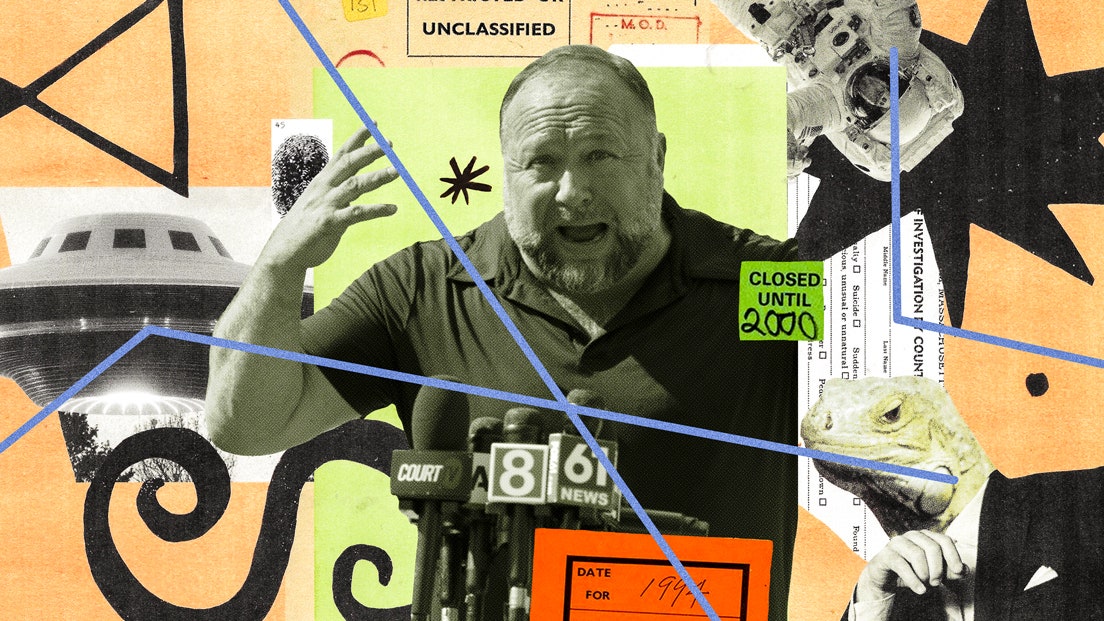They Lost Their Loved Ones — Then the Conspiracy Theories Started

When soldier Vanessa Guillen, 20, disappeared from the Army base formerly known as Fort Hood, now renamed Fort Cavazos, the case captivated the country. Fringe theories spread about the disappearance of the soldier, from claims that a cult was involved to suspicions that a serial killer was to blame. In the months before Guillen’s remains were found, her sister Mayra told Teen Vogue that any lead, as unlikely as it may have seemed, was something to follow up on. “Everything was important to us,” Mayra said. “We would take a look in every direction.” But sometime before her sister’s body was found, Mayra became the focus of theorists who claimed she had been involved in the disappearance. Desperate and anxious to find Vanessa, Mayra couldn’t believe a finger could be pointed in her direction. “I was like, what do I do? Do I laugh? Do I cry? What do I do?” she said. Mayra found it strange to watch online creators use her sister’s disappearance as fodder for views and followers. “That’s when it got upsetting… to use someone else’s tragedy in order to get… fame or attention.”
Vanessa’s remains were found on June 30, 2020, and the truth behind her murder was less fantastical than the theories that posited a cult or her own sister’s involvement. Prosecutors alleged that fellow soldier Aaron Robinson, 20, had killed Vanessa before burying her remains in a shallow grave. Robinson killed himself just days before charges were filed against him. A report later confirmed what Vanessa’s family had claimed, that she had been sexually harassed before she was killed (though not by Robinson, who had been accused of unrelated sexual harassment, according to The Times). In the case of Vanessa Guillen, theorists looked for a farfetched answer to the question of a missing soldier despite the fact that she disappeared from an Army base infamous for a rash of murders, suicides, fatal accidents, and two mass shootings and that statistics show female murder victims are likely to know their assailants.
Bigger-picture conspiracy theories, like the idea that COVID was planned or is less deadly than official government records claim, have a personal dimension, too. Kaitlyn Urenda, 31, lost her mother, Genevieve Martinez, to the virus in July 2020. When she comes across people spouting conspiracy theories about the illness that killed her mother, she says her first thought is, “Are you kidding?” It’s not that Urenda doesn’t understand the lure of conspiracy theories. She sees the fun in discussing the possible existence of aliens or Big Foot, but she sees death as a stark dividing line: “To theorize over people’s true life and loss, that’s not a conspiracy theory,” she told Teen Vogue. “That’s misinformation. It’s unwise, it’s deceitful, it’s divisive, and it’s painful.”
Though it can be tempting to completely dismiss anyone spreading misinformation, Urenda strives to stay open-minded. If faced with a conspiracy theorist denying or minimizing her mother’s death, she says she would ask them follow-up questions like where they get their news, who their favorite influencer is, and what podcasts they listen to. “Asking those questions helps me keep them human,” she said. “That’s the best way I can honor my mom. She was the most compassionate person and merciful to everyone. You have to emulate what you want to see — compassion and hope.”
Stay up-to-date with the politics team. Sign up for the Teen Vogue Take


